Declassified British files show that Harold Wilson’s government secretly armed and backed Nigeria’s aggression against the secessionist region, Mark Curtis reports.
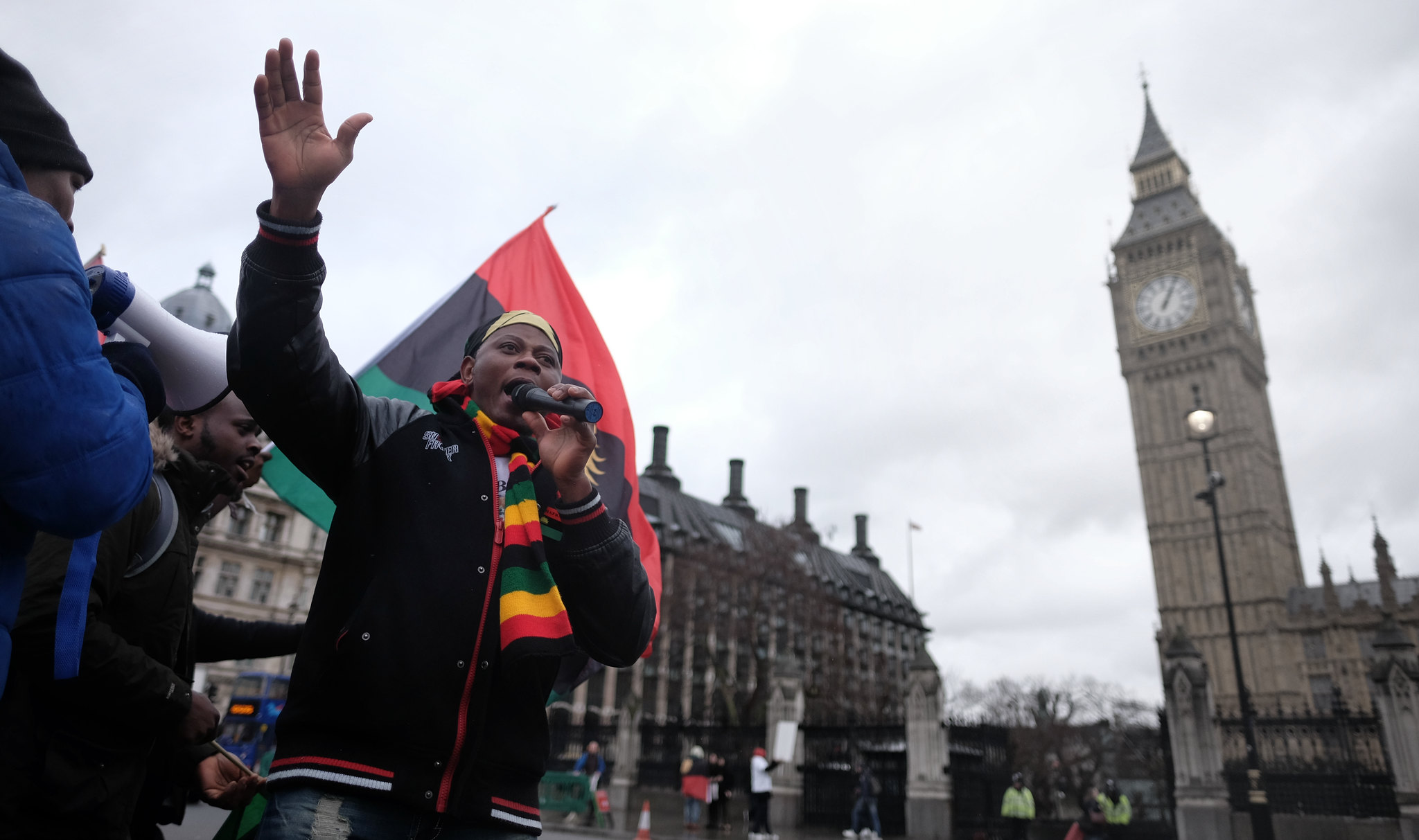
Biafran activists protest in London in 2016 outside the British parliament for the freedom of Nnamdi Kanu, an imprisoned leader of the secessionist movement. (Alisdare Hickson, Flickr)
By Mark Curtis
Declassified UK
 On the 50th anniversary of the end of the Biafran war, the world’s worst humanitarian crisis in the late 1960s, declassified British files show that Harold Wilson’s government secretly armed and backed Nigeria’s aggression against the secessionist region.
On the 50th anniversary of the end of the Biafran war, the world’s worst humanitarian crisis in the late 1960s, declassified British files show that Harold Wilson’s government secretly armed and backed Nigeria’s aggression against the secessionist region.
The then Labour government secretly provided large quantities of arms to the Nigerian federal government which, by early 1970, had crushed an attempt by the country’s eastern region of Biafra to gain independence, which it had declared in May 1967.
During the three years of war, up to three million people died, as Nigeria enforced a blockade on Biafra, causing widespread starvation amid considerable international opposition to the conflict.
British policy was mainly shaped by its oil interests, declassified government documents from the time show. “Our direct interests are trade and investment, including an important stake by Shell/BP in the eastern region,” the Foreign Office noted a few days before the outbreak of the war in 1967.
Investments by Shell/BP—then a joint company in Nigeria which was partly owned by the British government—amounted to around £200-million at the time. The company was the largest producer of oil in Nigeria, most of which was in Biafra.
Shell “have much to lose if the FMG [federal military government] do not achieve the expected victory,” George Thomas, Labour’s commonwealth minister, noted in August 1967. He added: “The sole immediate British interest in Nigeria is that the Nigerian economy should be brought back to a condition in which our substantial trade and investment in the country can be further developed, and particularly so we can regain access to important oil installations.”
UK supplies of arms — which eventually enabled the Nigerian government to win the war — included millions of rounds of ammunition, hundreds of machine guns and grenades, thousands of mortar and artillery bombs, aircraft and armoured personnel carriers.
These supplies were massively stepped up while Labour Prime Minister Harold Wilson was telling parliament that Britain was supplying arms to Nigeria at the same level as before. He made the false claim that there was “no special provision” for the war.
The decisions to supply arms and ammunition were taken at a time when it was clear they were being used against civilians. Wilson’s agreement to supply patrol boats in 1967 was done in the knowledge that this would help the government maintain the sea blockade against Biafra.
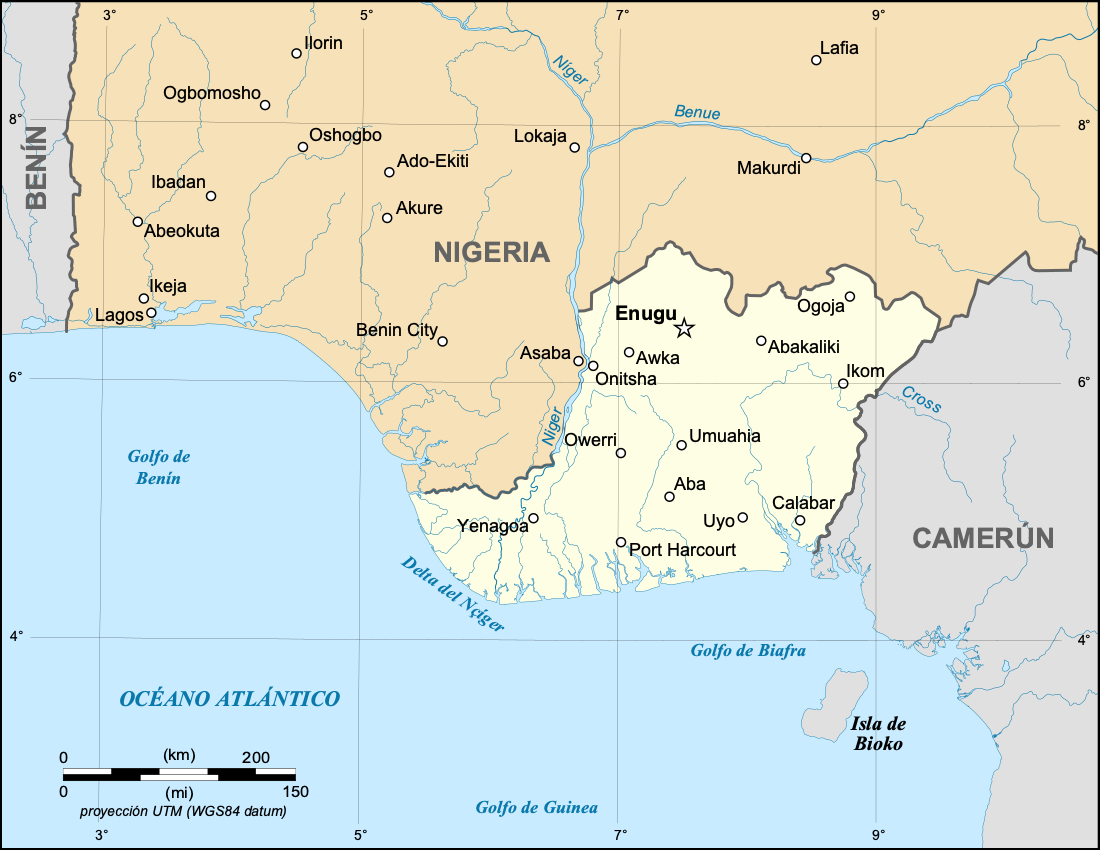

Declaration of War
The Nigerian government under General Yakubu ‘Jack’ Gowon — who had seized power in a military coup in July 1966 — began military operations to defeat the Biafran secessionists in July 1967.
His well-equipped federal army of over 85,000 men supplied by Britain and the Soviet Union, among others, took on a volunteer Biafran force under Lieutenant Colonel Chukwuemeka Ojukwu, the military governor of the Eastern region, much of whose equipment initially came from captured Nigerian supplies.
In the run-up to Gowon’s declaration of war, British officials made clear to the Nigerian government that they supported the country’s unity. Labour minister George Thomas told the Nigerian High Commissioner in London in April 1967, for example, that the federal government had “our sympathy and our full support” but hoped the use of force against the east could be avoided. Britain initially refused Gowon’s requests for military support to target Biafran ports.
By June 1967, however, the new British High Commissioner in Lagos, Sir David Hunt, wrote in a memo to London that the “only way… of preserving unity [sic] of Nigeria is to remove Ojukwu by force”. He said the Biafran leader was committed to remaining the ruler of an independent state and reiterated that UK interests lay in firmly supporting the federal government.
On 1 July 1967 Gowon asked Britain for jet fighter and bomber aircraft, six fast boats and 24 anti-aircraft guns. Britain rejected the aircraft and boats but agreed to supply the anti-aircraft guns. The deputy high commissioner in Enugu, Biafra’s main city, noted that supplying the anti-aircraft guns would be seen as British backing for the Gowon regime and “they could also take on an offensive role if mounted in an invasion fleet”.
The British government’s news department was instructed to stress the “defensive nature of these weapons” and to avoid publicity on their export from Britain. High Commissioner Sir David Hunt said that “it would be better to use civil aircraft” to deliver these guns and secured agreement from the Nigerians that “there would be no publicity”.
Faced with Gowon’s complaints about Britain not supplying more arms, Prime Minister Wilson agreed in mid-July to supply him with the fast patrol boats, in the knowledge they would help the government maintain the blockade against Biafra. Wilson wrote to Gowon saying that “we have demonstrated in many ways our support for your government as the legal government of Nigeria and our refusal to recognise the secessionists”.
Wilson also told Gowon that Britain does “not intend to put any obstacle in the way” of orders for “reasonable quantities of military material of types similar to those you have obtained here in the past”.
By early November 1967 Nigerian government forces had pushed back the Biafrans and captured Enugu. George Thomas now called for a “quick FMG victory” and recommended that the UK arms export policy towards Lagos be “relaxed” to ensure that outcome. On 23 November 1967 the Cabinet agreed that such a federal military victory provided the best hope for “an early end to the fighting”.


Arms Supplies
The following month, Commonwealth Secretary George Thomson suggested the UK should agree to Gowon’s shopping list for arms supplies. He wrote: “Anything that we now do to assist the FMG should help our oil companies to re-establish and expand their activities in Nigeria after the war, and, more generally, should help our commercial and political relationship with postwar Nigeria.”
As a result Britain supplied 36 armoured personnel carriers, along with 2,000 machine guns for them, anti-tank guns and nine million rounds of ammunition. Denis Healey, the Defence Secretary, wrote that he hoped these supplies would encourage the Nigerians “to look to the United Kingdom for their future purchases of defence equipment”.
By mid-1968 Britain had supplied 15 million rounds of ammunition, 21,000 mortar bombs, 42,500 Howitzer rounds, 1,950 rifles with grenade launchers, 15,000 lbs of explosives, 500 submachine guns, 4,000 rifles and four helicopters.
These arms exports were secretly stepped up at a time when killings were being widely reported in the press. About 1,000 people of the Ibo ethnic group, who predominated in Biafra, were killed in Benin city by local people with the acquiescence of the federal government forces, the New York Review noted in December 1967.
A further 700 Ibo males were lined up and shot in the town of Asaba in January 1968, the Observer reported at the time. According to eyewitnesses the Nigerian commander ordered the execution of every Ibo male over the age of ten in the town.
Humanitarian suffering, especially starvation, was severe as a result of the federal government’s blockade of Biafra. Pictures of starving and malnourished children went around the world and the Nigerian government was widely seen to be engaging in atrocities against civilians, including apparently indiscriminate air strikes, in an increasingly brutal war.
By the beginning of 1968, British files refer to deaths of between 70,000-100,000 people in the war. The Red Cross estimated there were around 600,000 refugees in Biafra and was trying to arrange supplies to meet needs, estimated at around 30 tonnes a day.
Public and parliamentary pressure in Britain to halt arms exports to Lagos was now rising, with 70 Labour MPs filing a motion for an embargo in May 1968. Yet the real extent of arms supplied by Britain was concealed from the public by the government.
Throughout 1967 and 1968, Labour ministers told parliament that Britain was essentially neutral in the conflict and was continuing to supply arms to Nigeria on the same basis as before the war. Wilson misinformed the House of Commons on 16 May 1968 that: “We have continued the supply… of arms by private manufacturers in this country exactly on the basis that it has been in the past, but there has been no special provision for the needs of the war”.
With the forces of Gowon’s regime in control of Port Harcourt, Biafra’s most important southern coastal city, by mid-1968, British officials noted that “having gone this far in supporting the FMG, it would be a pity to throw away the credit we have built up with them just when they seem to have the upper hand”.
Britain could not halt the supply of arms since “such an outcome would seriously put at risk about £200-million of British investments in non-Biafra Nigeria”, George Thomson explained to Harold Wilson in private.
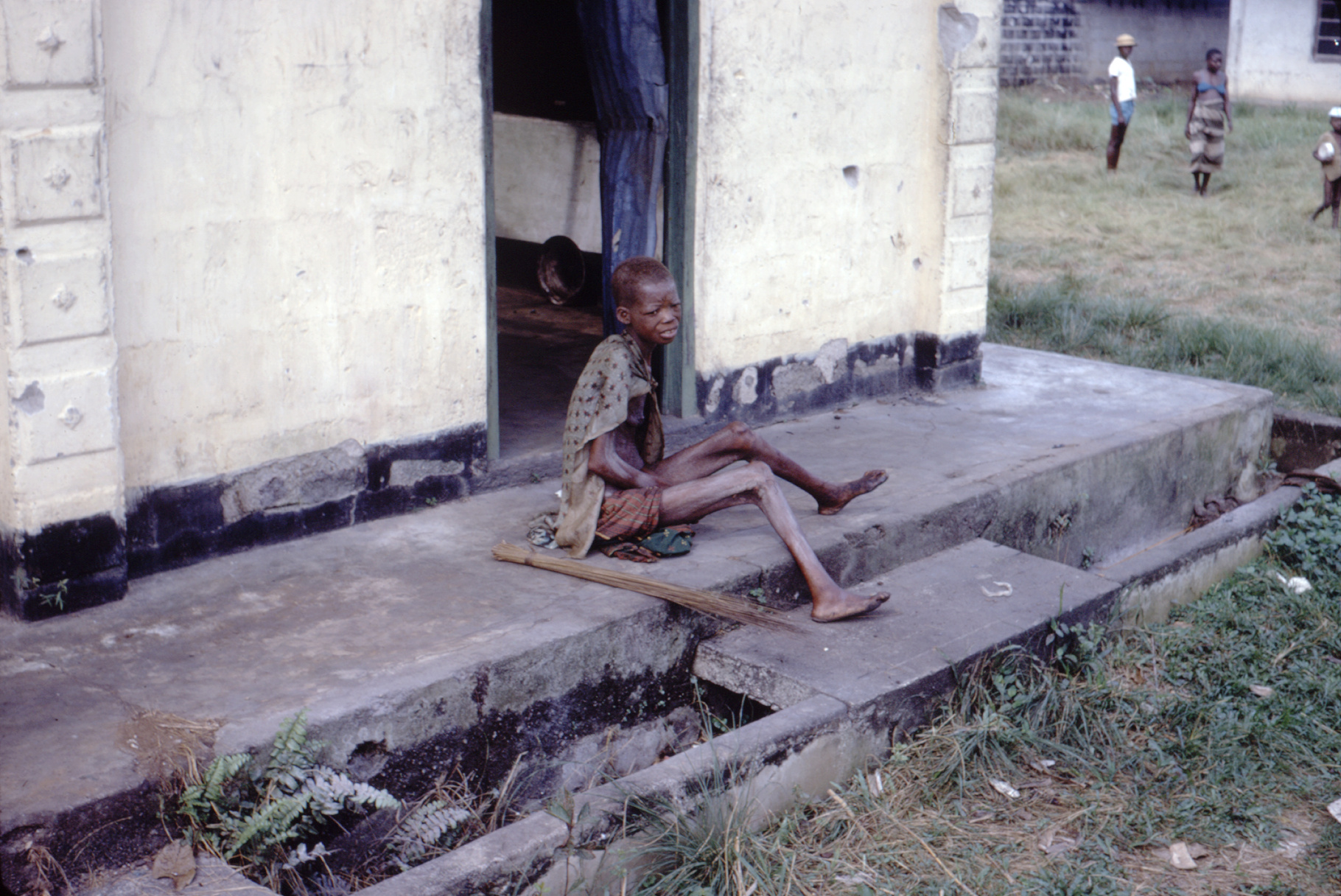

“Psychological warfare”
It was at this point that British officials sought to counter widespread public opposition to the Nigerian government by helping it improve the “presentation” of its policies. British officials urged the Nigerian government to convince the outside world that it was not engaged in genocide and to suggest it backed a ceasefire and humanitarian access to Biafra.
High Commissioner Hunt suggested to Gowon that the federal air force be used for “psychological warfare” and to drop leaflets over Biafran towns which would help the government score a “propaganda point”’.
Other officials noted that their support for Nigeria was under attack and that “our ability to sustain it… depends very much on implementing enlightened and humane federal policies and securing public recognition for them”. They argued that what was needed was “good and well-presented Nigerian policies which permit that support to continue”.
The files indicate that these presentational issues were much more important to British officials than the suffering of Biafrans. The Wilson government was mainly concerned that it would be forced by public pressure to withdraw or reduce its support for Gowon. It ruled out threatening to cut off or reduce arms exports to press the Nigerian government to change policies.
By early August 1968 federal Nigerian forces had retaken most of the southeast of the country and the Biafrans were now confined to a small enclave, blockaded from the outside world.
Labour’s other Commonwealth Minister Lord Shepherd minuted Harold Wilson saying that 14 months after Biafra declared itself independence: “Our support for the [federal military government] finds us in the position in which we are on comparatively good terms with the side which is in an overwhelmingly advantageous position”. The same month, the Red Cross estimated that 2-3 million people were “in dire need”, facing shortages of food and medical aid.
Wilson did not succumb to the growing public pressure. The month after the Red Cross’ dire warning, he told Gowon: “The British government for their part have steadfastly maintained their policy of support for Federal Nigeria and have resisted all suggestions in parliament and in the press for a change in that policy, particularly in regard to arms supplies”.
The Foreign Office again made clear its primary interest: “The whole of our investments in Nigeria and particularly our oil interests in the south east and the mid-west will be at risk if we change our policy of support for the federal government”.
Covert Military Supplies, Via Yemen
In November 1968, a group of parliamentarians in the Committee for Peace in Nigeria met Harold Wilson and urged him to halt arms sales and press for a ceasefire, estimating that there could be two million deaths from starvation and disease by the end of the year.
Wilson rebuffed this plea and two days later agreed to supply Nigeria with aircraft for the first time in a covert deal, the files show.
The Nigerians had long pressed Britain to supply jet aircraft, specifically to attack the runways used by Biafran forces for military purposes, but which were also used to deliver humanitarian aid. Wilson said that Britain could not supply these directly but there were such aircraft in South Yemen and Sudan previously exported by Britain.
The Nigerians, he said, should procure the aircraft from them which “would not directly involve the British government”.
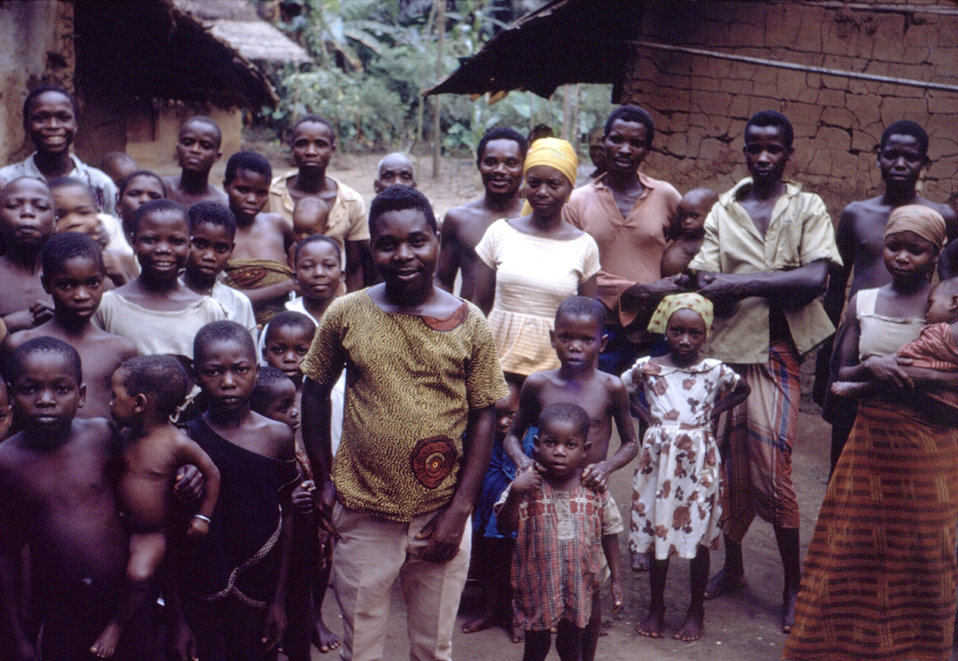

The British company that arranged the deal was Airwork, which was later to be used by the UK government to conceal its involvement in its covert war in Yemen. The British government also agreed to put the Nigerians in touch with “suitable pilots”.
British arms supplies were stepped up again later in the same month. Foreign Secretary Michael Stewart said the Nigerians could have a further 40,000 more mortar bombs and 2,000 rifles. Some 36 million rounds of ammunition had also been supplied in the last few months alone.
“You may tell Gowon,” Stewart instructed High Commissioner Hunt in Lagos, “that we are certainly ready to consider a further application” to supply similar arms in the future. He concluded: “If there is anything else for ground warfare which you… think they need and which would help speed up the end of the fighting, please let us know and we will consider urgently whether we can supply it.”
At the same time, the Foreign Office was instructing its missions around the world to provide disinformation about the extent of this arms supply.
It sent a memo to diplomatic posts on 22 November stating that “we wish to discourage suggestions” that the Nigerians—in their recent meetings with British officials—were seeking “to negotiate a massive arms deal”. Rather, “our policy of supplying in reasonable quantities arms of the kind traditionally supplied” to Nigeria “will be maintained but no change in the recent pattern of supplies is to be expected”.
Resisting Pressure
By the last two months of 1968, with hundreds of thousands now dead, the fighting had reached a stalemate. The federal government had taken all Biafran territory apart from a small enclave consisting of three million people in an area the size of the British county of Kent.
Biafrans were dependent on two airstrips for outside supplies which were limited by both Gowon’s and Ojukwu’s refusals to allow sufficient numbers of aircraft to land. Humanitarian agencies were continuing calls for a ceasefire as suffering, especially starvation, had reached crisis proportions.
However, Wilson told Gowon in November: “We shall continue to maintain our present policy, despite these heavy pressures on us.”
Foreign Secretary Stewart instructed Lord Shepherd, on a visit to Lagos, to tell Gowon of the extraordinary steps Britain was taking to support him. Gowon should realise, Stewart said, that opposition to British policy “cuts right across the normal political or party divisions in the country and is especially strong in the various churches”.
He also said that a “similar feeling is also expressed within the Cabinet itself”, suggesting that British support for Nigeria was being provided on a very thin basis.
The Wilson government was also keen to present itself as engaged in the search for peace. The files show that officials understood that a failure to appear to be active on this front made it harder to publicly justify their support for the Nigerian government. The British government policy sought to avoid the involvement of the United Nations in peace negotiations and was intended to support Nigeria to achieve a solution on its terms only.
The government’s public statements consistently blamed the Biafrans, but not the federal government, for obstructing peace negotiations and the delivery of humanitarian aid. The government in Lagos feared that the Biafrans would use the cover of humanitarian aid supplies to slip in arms deliveries; while the Biafrans believed the federal government would poison the supplies.
The leaders of both sides were responsible for the failure to deliver adequate humanitarian aid, but starvation of the Biafrans was no accident or simply a by-product of the war – it was a deliberate policy of the Gowon regime.
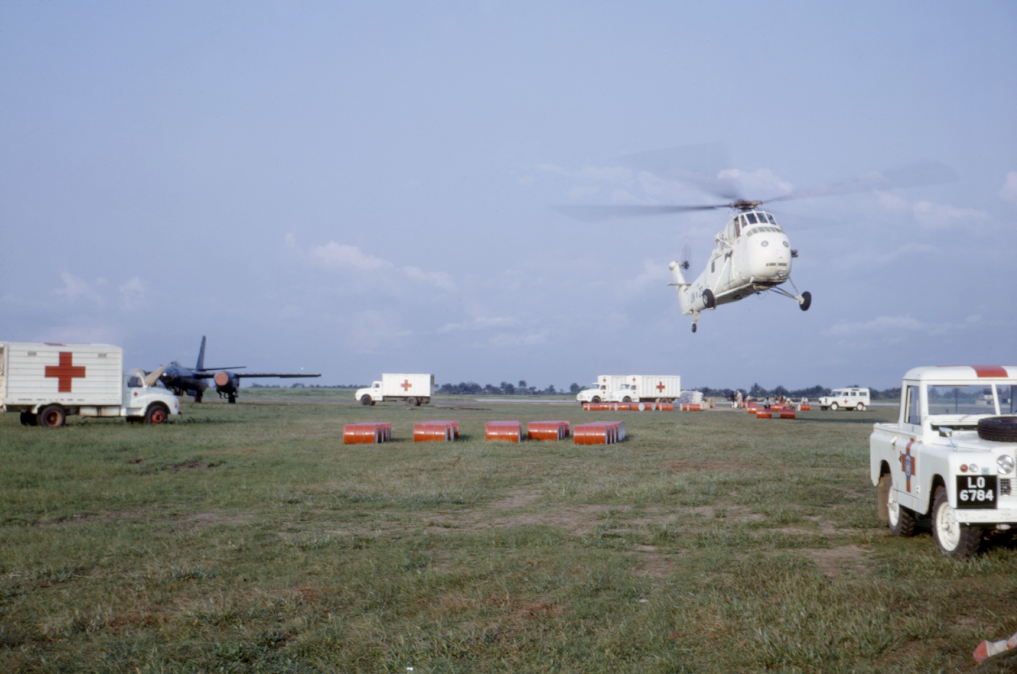
A field in late 1960s served as a make-shift airport in Calabar, Nigeria, where a helicopter team aided relief efforts in refugee camps in the Nigerian-Biafran war zone. (Wikimedia Commons)
Disinformation
By March 1969 Wilson continued to misinform the public that “we continue to supply on a limited scale arms – not bombs, not aircraft – to the government of Nigeria because we have always been their suppliers”.
Not only was this untrue as a result of the agreements late the previous year; on the very same day as this interview, the government approved the export of 19 million rounds of ammunition, 10,000 grenades and 39,000 mortar bombs.
A day before the Wilson interview, a Foreign Office official privately wrote that “we have over the last few months agreed to supply large quantities of arms and ammunition” to Nigeria “to assist them in finishing the war in the absence of any further [peace] negotiations”. He also noted that “we have flown small arms ammunition to Nigeria… using Manston airport in Kent without attracting unfavourable press comment”.
It was perhaps no surprise that Gowon could write to Wilson in April saying that “of all the governments in the Western world, yours has remained the only one that has openly maintained its policy of arms supplies to my government”. France, Belgium and the Netherlands, among others, had all announced a halt while the US continued its policy of not supplying arms to either side.
Two senior Royal Air Force officers secretly visited Nigeria in August 1969 to advise the government on “how they could better prosecute the air war”. The main British interest, the files make clear, was to better protect the oil installations, but the brief for the two officers stated that this impression should not be given to the Nigerians.
The officers subsequently advised Nigerian commanders on “neutralisation of the rebel airstrips”. It was understood that destruction of the airstrips would put them out of use for daylight humanitarian relief flights, although it is not clear whether the specific British advice was put into action.
“Sticking to Our Guns”
In December 1969, just before the federal government’s final push that crushed the Biafrans, Foreign Secretary Michael Stewart was still calling for stepping up military assistance even further. The British supplies, he wrote, “have undoubtedly been the most effective weapons in the ground war and have spear-headed all the major federal advances”.
When Biafran resistance ended in mid-January 1970, Wilson sent another private message to Gowon saying that “your army has won a decisive victory” and achieved “your great aim of preserving the unity and integrity of Nigeria”.
He added: “As you know I and my colleagues have believed all along that you were right and we have never wavered in our support for you, your government and your policy, despite the violent attacks which have been made on us at times in parliament and in the press as well as overseas”.
The Deputy High Commissioner in Lagos added: “There is genuine gratitude (as indeed there should be) for what Britain has done and is still doing for this country, and in particular for Her Majesty’s Government’s courage in literally sticking to their guns over Biafra.”
The toll of the war was assessed in a report for the British High Commission at the end of the month. It mentioned that up to two million people were being fed with food relief supplies, around 700,000 of whom were refugees in camps dependent entirely on food aid.
Three million refugees were crowded into a 2,500 square kilometre enclave in Biafra where not only food but medicine, housing and clothing were in short supply. The Biafran economy was shattered, cities were in ruins and schools, hospitals and transport facilities destroyed. DM
Mark Curtis is an author and editor of Declassified UK, an investigative journalism organisation that covers Britain’s foreign, military and intelligence policies. He tweets at @markcurtis30. Follow Declassified on twitter at @declassifiedUK
This article is from The Daily Maverick.
Please Donate to Consortium News

Indeed – Gaza and the West Bank. All that remains of Palestine – the rest being fully occupied by the zionists, an occupation fully accepted and agreed to by the usual paleskinned Orientalist western nations while totally ignoring the full political, civil, human rights of the indigenous Palestinian people to their land and homes (all too many deliberately destroyed and covered in forestry now) – an ignoring that continues to this day.
Policymaking now consists of campaign bribes, with no consideration of arbitration or nonmilitary solutions.
Secret wars and policies are invariably secret because corrupt officials know that the people would not approve.
This is the ongoing disaster of corruption of our former democracies by gold, allowing secret wars.
The tools of democracy (mass media, elections, and judiciary) are now completely controlled by gold, the new tyranny.
No policy should be enacted or permitted without full public debate and transparency.
The public must unite to destroy the tyranny of official corruption, and to restore democracy.
The truth about Biafran genocide is gradually surfaceing which the world leaders kept mute till date
The fact remains that the actions of Britain and their allies murdered over 5000000 biafran civilians and solders put together because of their oil interest in Biafra land.Supposing they allowed the separation of the two nations amicably by avoiding lost of millions of lives and still maintain their valued interest in both countries.
Yemen.
Who was supplying arms to the Biafrans?
I remember supporting humanitarian appeals to combat Biafran starvation, but I wonder whether any outside government forces were at work to supply arms to Biafrans.
Apparently Israel and France actively supported the Biafran breakaway state. I remember the war and its suffering, but was not aware that Biafra was rich in oil.
Perhaps the analogy is best with Syria, where the Western powers are seeking to detatch an oil rich section of the country, no matter what the human cost.
It’s very clear now that Yakubu Gowon has been lying. He in collaboration with the British government massacred and starved the biafran civilians. He should not deceiving himself with his praying antics. He is a murderer.
We the Biafrans already know today and forever that the British or any living being from Britain are worthless before our eyes and the evil and genocide they bestowed to the Biafrans will not be forgotten and evil will not depart from Great Britain. Their evil will follow anything born of Britain to grave. I lost my only senior brother in that war which tore and turn my family into pieces and upside down. There is no forgiveness to this demons called Britain and no apologies will suffice their wickedness and evil towards Biafrans. Till today, Britain is secretly supplying ammunition’s to Fulani cabal caliphate to keep killing the Biafrans through ABBA Kyari who corona virus killed him like a hit by car and his carcass being eaten by scavenger or the street. God never sleeps. The evil that men do lives before and after them. Wooooo and shame to devilish British because we the Indigenous people of Biafra will never and ever forgive them. First of all they ignited and enacted the war, supplied the ammunition and man power to commit this genocide, the Blood of Innocent people of Biafra is their hands and their spirit, ghost is still hovering over the air seeking for revenge in the hands of every born British and their citizens.
So sorry to learn of this.
Harold Wilson was a figure I admired at least in some of his public activities.
He turned down Britain’s participation in the other holocaust of the time, Vietnam, despite heavy pressure from Lyndon Johnson.
As always, power corrupts.
Gowon you must confess and apologise to the igbos before you die.
I too thought Wilson to be better than most PMs, particularly given his being leader of the Labour Party of the time *and* because he refused to join LBJ in destroying Vietnam.
The tarnishing of Wilson’s rep with me began last year when I learnt of his handing over (to LBJ’s admin – the “price” for not kowtowing to sending Brit troops to Vietnam?) the Chagos Islands, especially Diego Garcia, for the US military’s use and abuse. Thus Wilson was behind the expulsion of the Chagos Islanders from their home land and homes, the killing of their animals and their being deposited in Madagascar. The Islanders are impoverished and want to return to their homes, their homeland.
But the US won’t permit it and the Brit govt of the Maybot (and doubtless any other – one only has to think of Assange to know this) ignored the judgement of the ICC – for the Chagos Islanders and their return to their homes and land. So these people remain refugees (like the Palestinians violently expelled 1947-8 by the zionists) unable to return to their homes and the lifeways they want, long to resume.
They – like the Biafrans – are considered by the paleskins of the west (UK and US in particular) as dispensable, disposable, most especially when they stand in the way of western corporate-capitalist profiteering, US hegemonic rule.
Nowadays I realize that no politician – or none with any moral, ethical fiber, any true humanity – exists, or exists as a politician of any standing for very long.
He was unable to send troops to Vietnam.
There was significant opposition within his parliamentary party and he started off with only a small majority.
In addition, Defence Secretary Denis Healey really hated LBJ. He even described him as a ‘monster’ in his memoirs.
Curtis’ books are really good too—interesting and deeply disturbing.
Perhaps a wider context would add some illumination.
“Independence” in Africa for the “Francophone” and “Anglophone” colonies was granted with strings attached including “intelligence/security” arrangements, currency zones and arrangements/preferences re logistics.
In the Three Rivers States/Biafra the most effective transport was maritime/riverine, and the main product of interest was not restricted to oil which at that time was close to its infancy in the Niger Delta, but included plantation products including timber for export particularly in the Sapele and Warri areas,and Palm nuts/oil which also had an affect on agriculture and other food resources in the region through environmental destruction.
Under colonial rule and after independence the transport companies developed inter-locking networks of activity/interest and hence the motivation to “assist” was wider than protecting/developing the interests of BP and Shell but also included, but was not restricted to, the interests of Elder Dempster/Ocean Group and Unilever and the Sterling zone, but included the IMF and the World Bank.
This model also informed/informs the arrangements/practices of US colonialism since “awarding” freed slaves their own country and calling it Liberia, including but not restricted to the process of designating commodities in US dollars then removing the option of others to be recompensed in gold for any surplus, thereby “encouraging” other’s surpluses/reserves to be held in US government bonds thereby financing “The United States of America” – Its not only about the oil, oil only being a moment in the process, not all of the process – a political process cloaked in “economics” whose main targets in the 1970’s were Japan and Saudi Arabia.
A fuller explanation/illustration of the process can be found in Mr. Michael Hudson’s book Super imperialism – present examples being akin to the triangulation relations of the slave trade in previous centuries partly as a function of one-trick-ponyness.
This process is a significant facilitator of the social relations self-described as “The United States of America” which are not restricted to the political geography “representation” of the location of “The United States of America.”
Biafra then, Gaza now. Unfortunately some things never change !
“Biafra then, Gaza now. Unfortunately some things never change !”
Well there was/is a measure of quantitative change.
After the civil war in Nigeria public executions took place in Port Harcourt and elsewhere for which would be spectators could buy tickets, and satiated crocodiles would allow allow corpses to float by unmolested on the Niger and its tributaries.
Perhaps a better analogy would be Indonesia in 1965 to perceive the ways of opponents ?
Gaza now indeed
Netanyahu has been given free rein to shoot thousands of demonstrators with military ambushes from behind fences, repeating the horror week after week last year. Several hundred were killed, including women and children. Thousands were wounded with many crippled for life.
None of our leaders said a word against it. Indeed, some shamefully spoke of Israel’s “restraint.”
And of course, the years-long, crippling blockade of Gaza. At its inception, it was brutally severe because Israel had calculated the number of calories that allowed bare survival, and that was the number allowed in (a measure that was later relaxed somewhat owing to silent international pressure).
It really doesn’t come more ruthless than that, but none of our leaders ever said a word against it.
And there were the heavily armed incursions, tanks planes and artillery against what is a giant, crowded refugee camp, in which several thousand were killed, including about a thousand kids. Blood literally ran in streets., as I saw in photos on-line.
None of our leaders said a word.
And there was piracy on the high seas of an unarmed mercy ship trying to bring aid to the people under blockade. Brave Israeli commandos shot ten unarmed people in the process of seizing the ship
Yes, Gaza indeed.